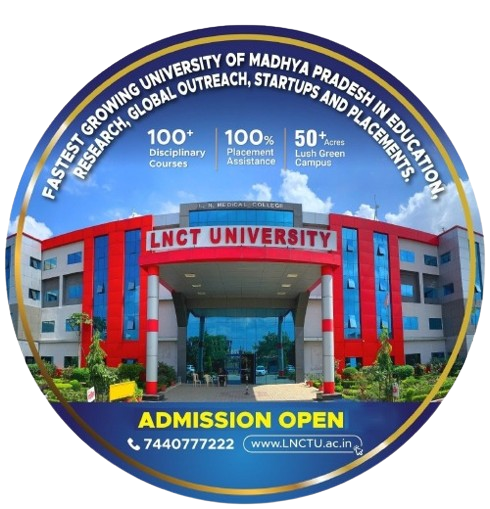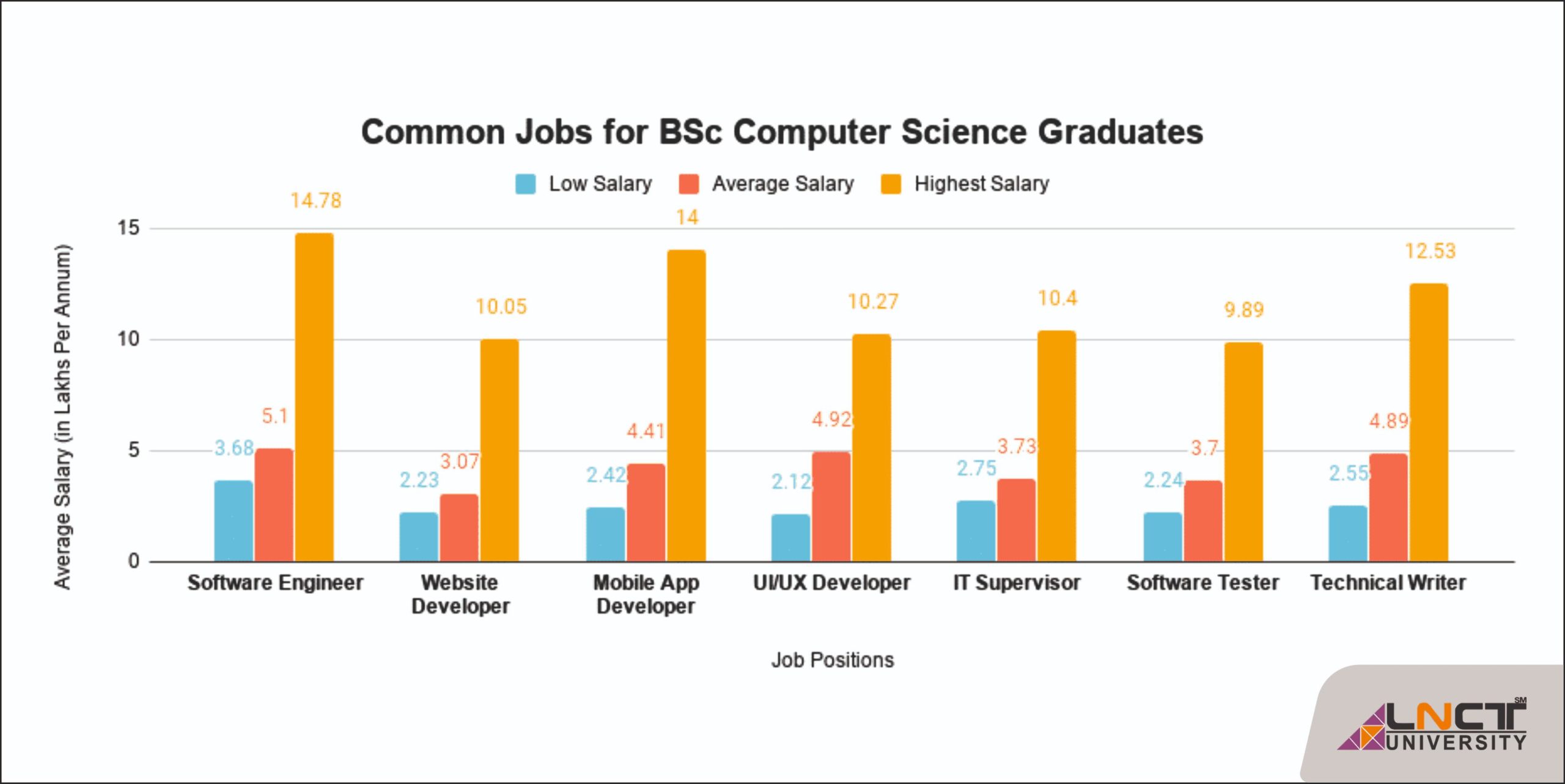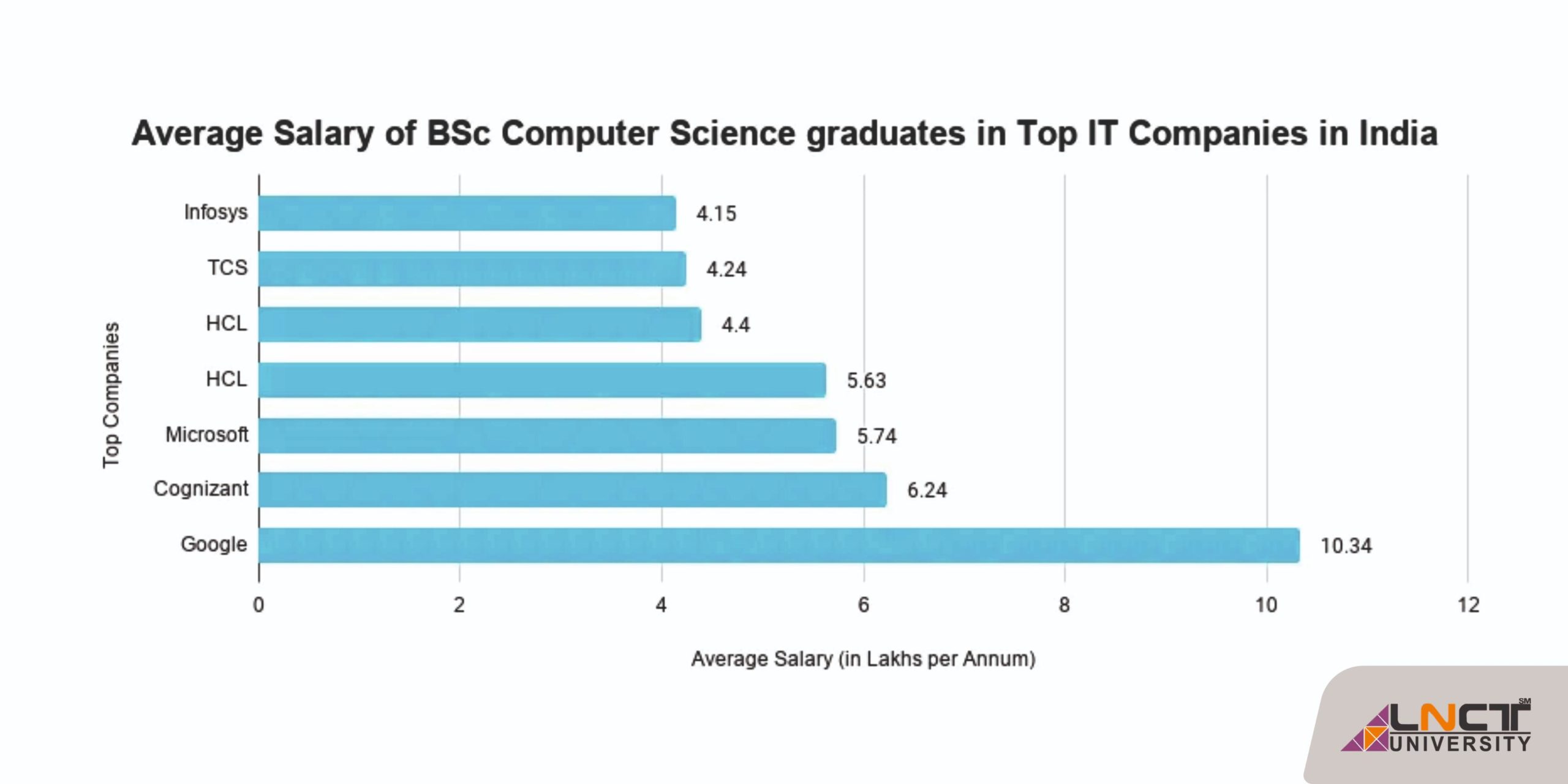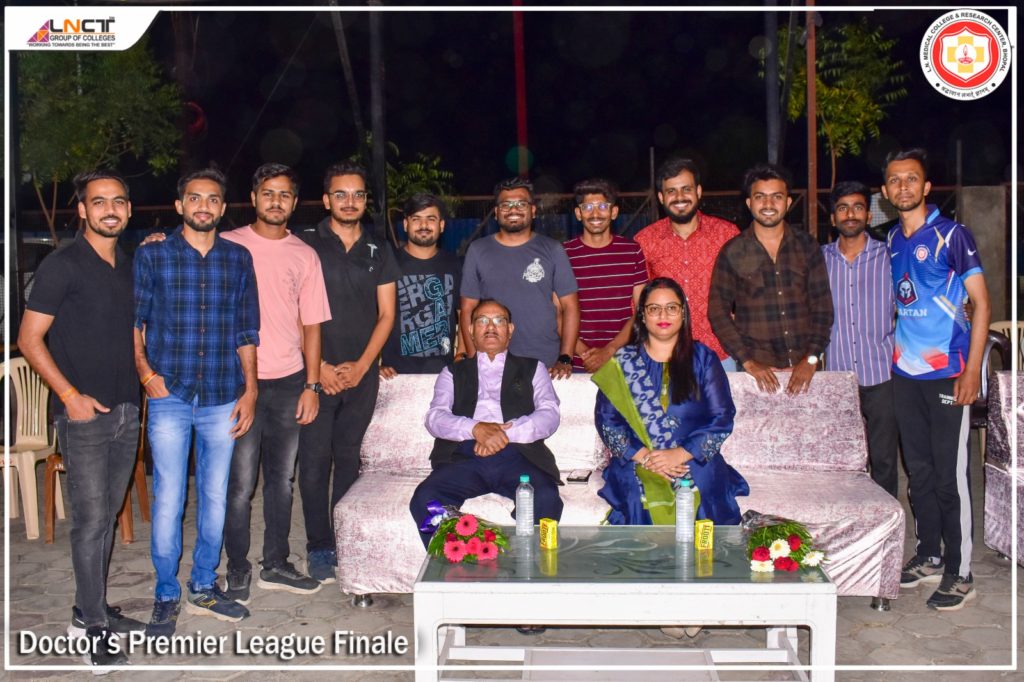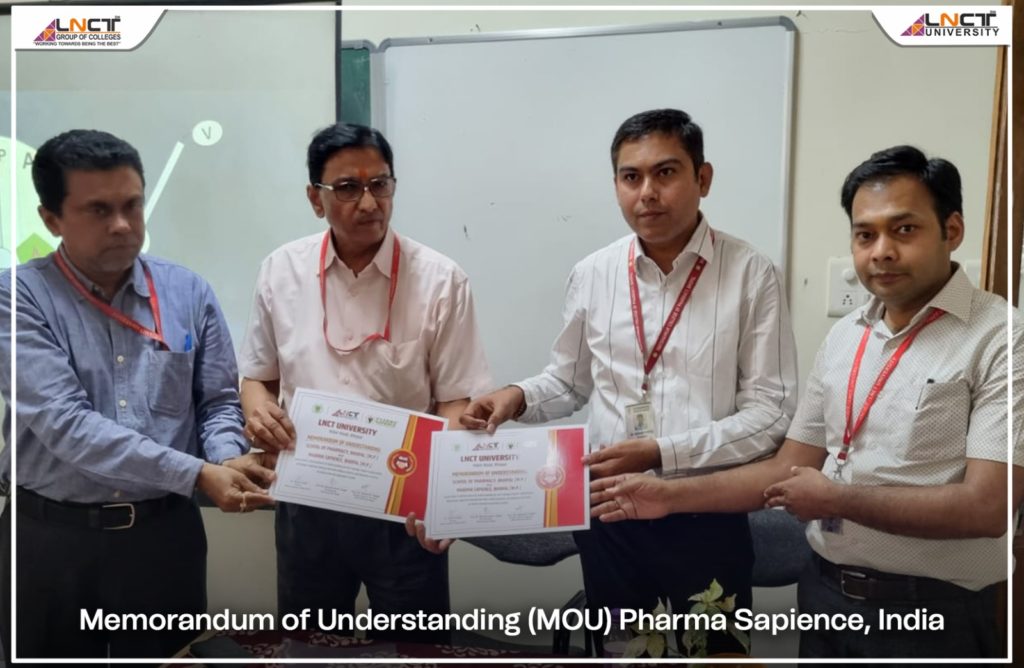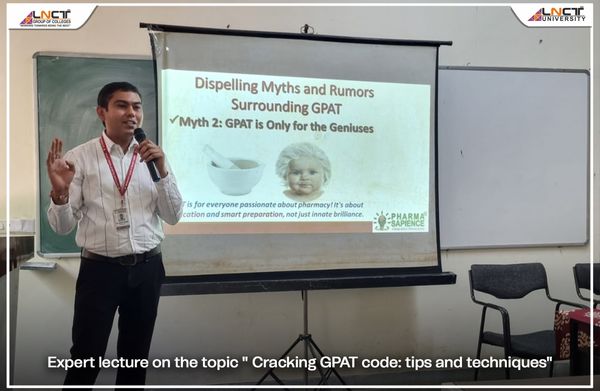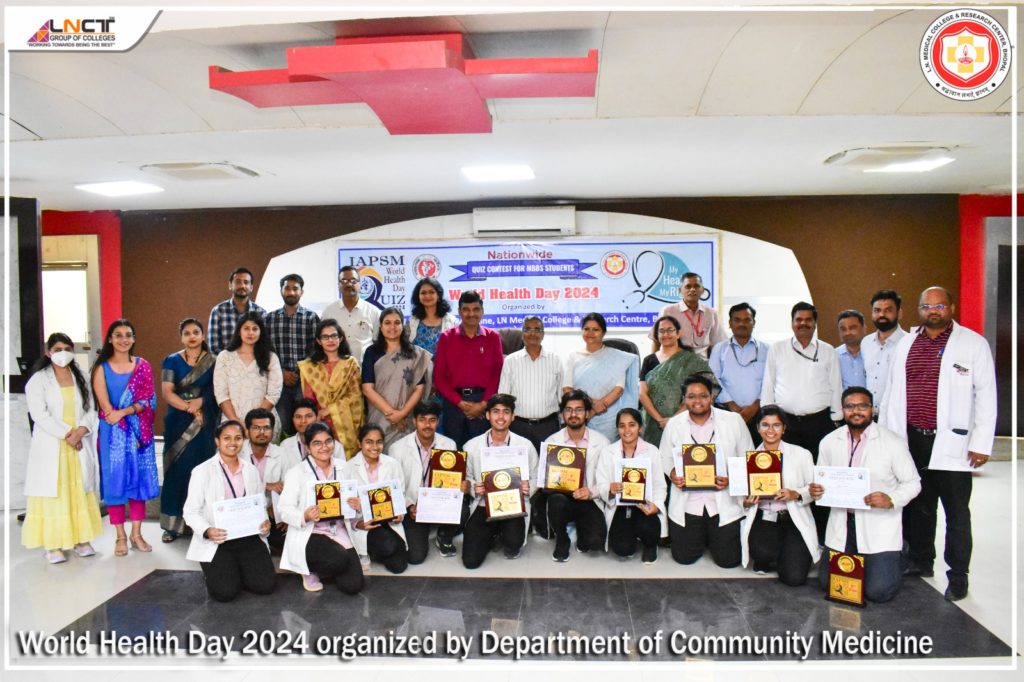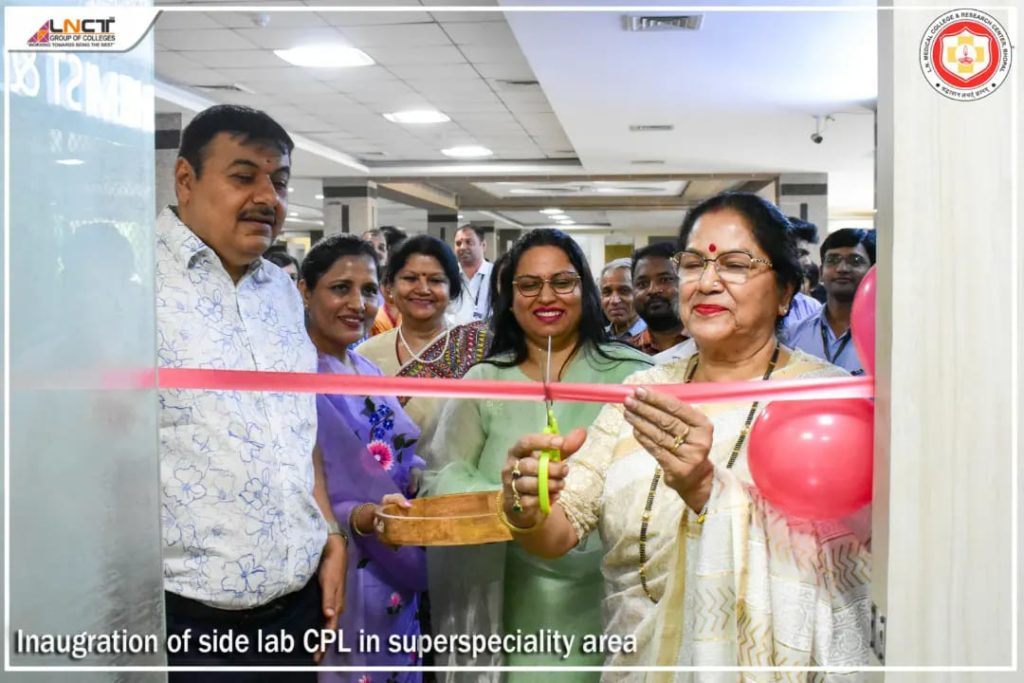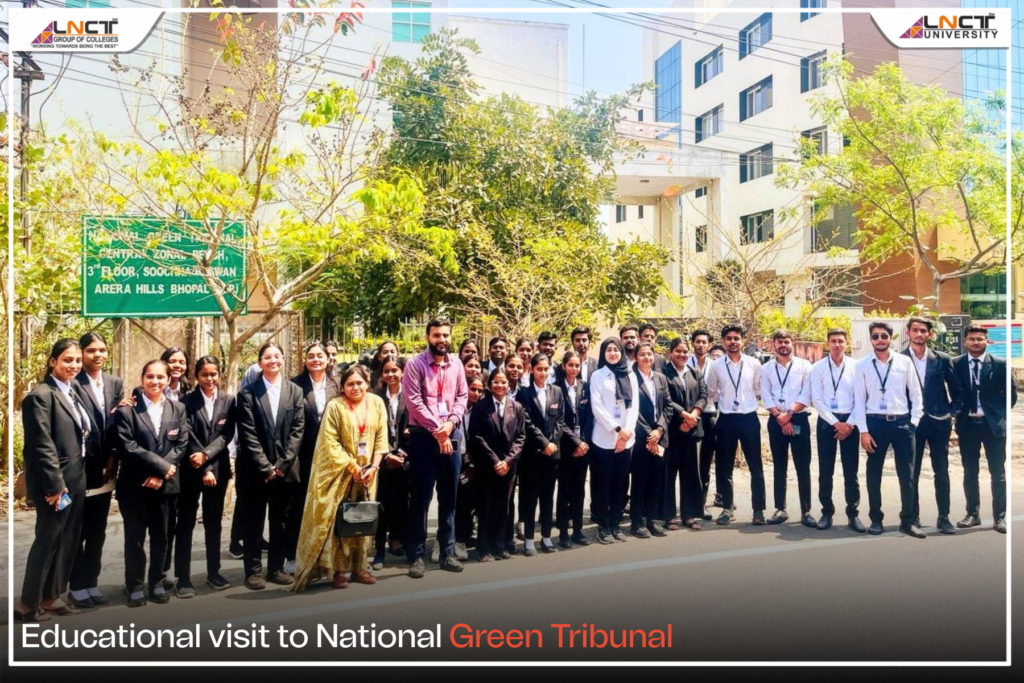The Bachelor of Science in Information Technology (B.Sc IT) is a three-year undergraduate programme that focuses on the topic of information technology, which is fundamentally about storing, processing, safeguarding, and managing data. The course’s major goal is to teach subjects that revolve around the methodical processing and management of information. Like Deloitte, Accenture, IBM, Infosys, Microsoft, and others, many top-tier recruiting firms provide job chances to graduates.
About B.Sc Information Technology
Information Technology is defined as “the study or application of technologies (particularly computers and telecommunications) for storing, retrieving, and delivering information,” according to Oxford Languages.
Computer architecture and organization, database system, operating system, electronics, computer networking, foundations of a computer system, java programming, website design, and other topics are covered in the B.Sc IT curriculum. The B.Sc. IT programme offers good job opportunities. There are a variety of work opportunities accessible for those seeking a professional career. IT Support Analyst, Network Engineer, IT Consultant, and Technical Sales are all significant job titles. The IT department’s job responsibilities include using basic information technology, as well as tools such as computer-assisted design and computer networking, to:
- Watercraft
- Robotics
- Weapons design
- Building big aircraft software
- Cybersecurity
- Navigation
- Transport
- Manufacturing
- Connectivity
- Global warming
Eligibility Criteria for BSc IT
Aspirants must complete class 10+2 or pass examinations from any recognized school or board to be considered for admission to the B.Sc IT eligibility course. Aspirants must be between the ages of 17 and 25, which is a crucial aspect of the admissions process.
How To Get Admission for B.Sc Information Technology?
Applicants must first visit the Madhya Pradesh Directorate of Technical Education’s official website.
After clicking on the registration link, applicants must fill out the registration form with all of their correct and complete information.
Candidates will get login information, such as their registration number and password, after completing the registration process.
The candidate has to submit the required documents
Admission to the B.Sc Information Technology prerequisites programme is based on the aspirant’s 10+2 exam progress report and is also done on a merit basis. Every college has its own admissions process, and admission forms are published once the results of the 10+2 exams are announced. The official websites of LNCT University can provide further information to students.
How to apply
With the COVID pandemic on the rise, 19 institutions and colleges have implemented complete online ways for applying for admission. There is a manual application process for admission. If a few hopefuls do not want to use the internet option, they can come to the office and provide their legal required documents for the admission procedure while taking all necessary safeguards.
Selection Process
Following that, there may be a final round of group discussion or a personal interview before admission is confirmed.
Why Choose B.Sc Information Technology?
Choosing a course is difficult, and getting the correct course and advice is essential in today’s world.
The following are a few themes that touch on the significance of “why pick B.Sc IT?”
What is B.Sc information Technology All About?
For candidates to be eligible for a B.Sc. in Information Technology, they must complete a three-year undergraduate programme that focuses on processing, storing, retrieving, or modifying data or information. Aspirants are interested in learning more about e-commerce, software engineering, website design and development, and digital information management. Computer organisation and architecture, technical communication skills, networking, and the internet environment, and so on are all significant topics. Aspirants with a B.Sc in Information Technology would have work prospects in a variety of IT fields. Bachelor of Science in Information Technology is the full form of B.Sc.
What Does An Information Technology Do?
B.Sc. Information Technology is a broad programme that covers nearly every aspect of computer science, including software development consultant. A few standard features are listed here. IT stands for information technology, which refers to the safe and secure transmission of data or other useful information from one user to another using computer systems or technology.
Research and development is the process of coming up with fresh ideas for research and technology.
Designing Products: Information Technology creates products based on AI movements, which includes software development, information technology, computer forensics, information technology business analysis, and computer network architecture.
Basic skills for analysing and solving problems connected to the I technological system are required for systems management.
Marketing: The market for information technology is increasing every day and will continue to increase throughout the working day. Work has gotten so simple and reliant on information technology that it is inconceivable to do without it.
Reasons behind Information Technology Fetching You Rewarding Career?
Demand: Since the development of the computer following the revolution, many factories and companies have been sorted on labour and have been introduced to the digital world of information technology, which has made work easier and efficient. Aspirants who apply for the job also have a bright future because the machine’s development will work forever, so more jobs in the technology sector are created every day.
Good income and job growth: Information Technology always pays a good wage to those who are qualified for the position and helps them stay within their budget. The sector’s job growth is always above average; the average pay for a B.Sc Information Technology student is INR 5.5 LPA, and INR 9.5 LPA for graduate students.
Preparation Tips for B.Sc Information Technology
Let’s look at some B.Sc Information Technology preparation suggestions and see how you may prepare for the BSc IT entrance exams.
Here are a few things to remember before taking the admission exam:
It is critical to understand the syllabus.
Mathematics is required in the 10+2 examination.
Concentrate on the everyday fundamental sessions that will assist you during the exam.
For a better comprehension of complex themes and words, seek aid from friends or study in groups.
Scope For Higher Education
The scope of B.Sc IT course details for further education is vast, and any higher educational expertise, such as an MBBS degree, could be included in the CV. Those who have achieved a B.Sc. in IT can pursue higher education courses such as:
- Management of data
- Inventory
- Customer relationship
- Information Systems
- Network Administrator
- Information Technology Manager
- Computer Support Specialist
Salary of a B.Sc Information Technology
According to the Times magazine, India has the greatest job employment rate among the many high-ranking countries in the world in the educational sector. The worth of a job salary is fully determined by the candidate’s qualifications for the position.
Freshers can expect to earn between INR 2 and 4 LPA, while experienced candidates can expect to earn between INR 4.5 and 9.5 LPA.
Skills That Make You The Best Information Technology Engineer
Because information technology programmes are used by every sector in this era, aspirants are enrolled to transform them from raw aspirants to professional information technology aspirants. Some of the abilities that B.Sc Information Technology students should have
- Common operating systems
- Software proficiency
- Technical writing
- Project management
- Data analysis
- Team Working Skills
- Communication Skills
- Creativity
- Problem-Solving Skills
- The Ability to Work Under Pressure
- Interpersonal Skills
- Technical Skills
Computer architecture and organisation, database system, operating system, electronics, computer networking, foundations of a computer system, java programming, and website design are among the disciplines covered in the B.Sc IT curriculum. After finishing the three-year curriculum, applicants are awarded a B.Sc IT degree. The terms “software application” and “computer” refer to the design, development, implementation, support, or management of information. The goal of a B.Sc IT topics degree is to learn about computer technology and to cover the whole B.Sc ITsyllabus, from installing apps to constructing complicated networks and databases.
Semester Wise B.Sc Information Technology Syllabus
Exams are conducted in a variety of ways in different institutes. Exams in B.Sc information technology, on the other hand, are done semester-by-semester, from one to six semesters. Some of the Information Technology B.Sc syllabus is listed below.
| Semester I | Semester II |
| Technical Communication Skill | Data Structure Using C Language |
| Problem Solving Methodologies & Programming in C | Web Programming |
| Computer Fundamentals and Emerging Technology | Computer Organization and Architecture |
| Networking and Internet Environment | Mathematical & Statistical Foundation of Computer Science |
| Semester III | Semester IV |
| SAD, Software Quality Assurance & Testing | Programming with Java |
| C++ and Object-oriented Programming | Programming with C# |
| RDBMS Using Oracle | Network Technology & Administration |
| Content Management System Using Joomla | Operating Systems Concepts with Unix/Linux |
| Semester V | Semester VI |
| Programming with C#.NET | Programming with ASP.NET |
| Advanced Java Programming | MS SQL Server Database Administration |
| Software Testing and Project Management | Network Management and Information Security |
| Project Development | Project Development |
B.Sc Information Technology Subjects
B.Sc IT subjects cover a wide range of subjects and syllabus that are crucial for aspirants to learn over the course of three years in preparation for the final examination, which is held for eligible aspirants at the end of the final year. Here are a few key subjects in information technology, such as software, databases, and networking. The B.Sc Information Technology syllabus is award-winning. The following is a list of all B.Sc IT disciplines, which includes both core and elective subjects:
Core subjects:
- Basics of Computer Science
- Basics to Digital Electronics
- Mathematics I
- C Programming
- Discrete Mathematics
- Computer Organization
Electives subjects:
- Computer Graphics
- Computer Networks
- Computer Systems
- Architecture
- Operating Systems
- Software Engineering
B.Sc Information Technology Course Structure
The B.Sc. Information Technology programme is designed to cover all six semesters over the course of three years. The course focuses on programming and numerical language in particular. Students can select electives based on their specialisations and areas of interest, and at the end of the VI semester, they must submit research-based practical projects. The subjects in the B.Sc Information Technology course structure are as follows:
The course structure is:
- VI Semesters
- Core and Elective subjects
- Internship
- Project Submission
B.Sc Information Technology Teaching Methodology and Techniques
In comparison to any other subject related to any course, BSc IT uses a completely different methodology and techniques in teaching the subjects. Following each lecture and teaching, a specific lab class is adjacent to the teaching so that aspirants can get a clear view of the information being taught to them and practise it at college or at home. In a nutshell, the B.Sc in Information Technology teaching methods and techniques are as follows:
- Practical sessions
- Group projects
- Workshop
- Authority Style
- The Delegator
- The Facilitator
- Demonstrator
- The Hybrid
B.Sc Information Technology Projects
In comparison to any other subject related to any course, BSc IT uses a completely different methodology and techniques in teaching the subjects. Following each lecture and teaching, a specific lab class is adjacent to the teaching so that aspirants can get a clear view of the information being taught to them and practise it at college or at home. In a nutshell, the B.Sc in Information Technology teaching methods and techniques are as follows:
- Face recognition
- Development of an app for android, windows, and iso
- Ad server
- Payroll system
- Management system for a lab
- Electronic signature implementation
- Information system for human resource
Information Technology has been a popular choice among students and their parents, as it opens doors to opportunities abroad. IT’s popularity stems from its ability to improve the lives of ordinary people. Information technology, a byword for smart living, has been the driving force behind making humanity’s existence simpler, smoother, and easier. A guy with information has the capacity to move the wheels of fortune in today’s world. Furthermore, IT tests an individual’s competency and encourages them to come up with novel ideas that can alter the framework of human life.
- Social media networking
- Patient portals
- Digital marketing
- Mobile Applications
- Website Applications
- Online shopping Portals
- Internet Banking
Information Technology courses are designed to provide students with theoretical knowledge as well as skill sets that fit the needs of IT firms. All aspects of software design, development, and testing are covered in IT courses. Students interested in pursuing a B.Tech. in IT should be aware that this course covers the fundamentals of database management systems, Java programming, information security, algorithm analysis, computer networking, ERP, E-commerce, cloud computing, software engineering, and a variety of other topics.
Read About Our More Courses:
M. Pharm (Master in Pharmacy) – A Complete Guide
Electro Homeopathy: Course, Career & Job Prospects
Diploma in Health & Sanitary Inspection
Diploma in Acupuncture – A Step by Step Guidance




